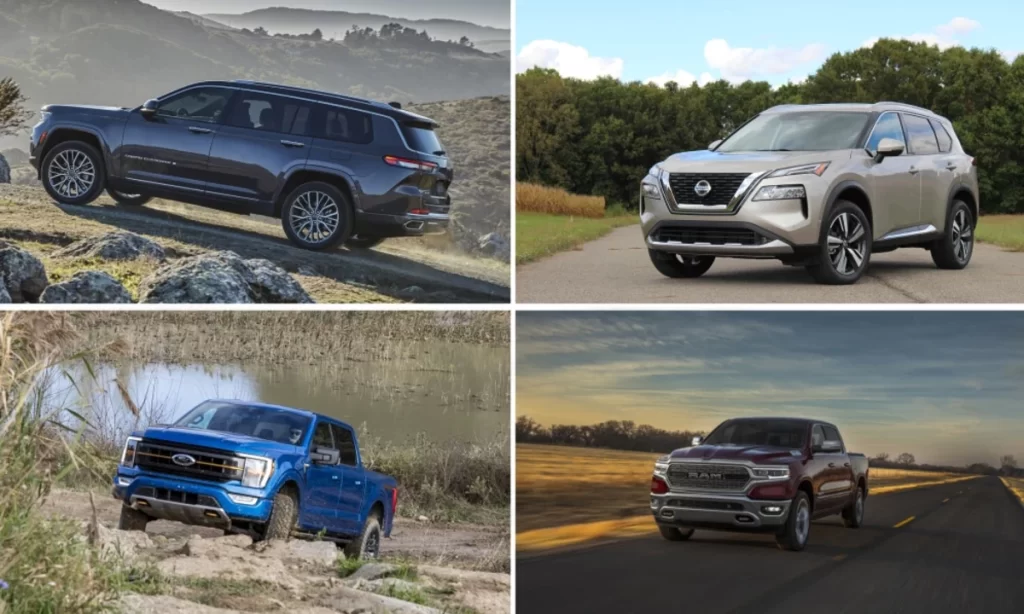Many new car buyers often ask what the difference is between an SUV and crossover (also referred to as CUVs). Simply stated, an SUV features a truck-like chassis design with body-on-frame construction while CUVs tend to feature similar body structures.
These SUVs can tow substantial loads and traverse terrain that would be hard for crossovers to manage, giving them their moniker: sport utility vehicle.
Size
Dependent upon how you plan on using your vehicle, an SUV might be best. These large vehicles feature rugged designs perfect for off-road environments as well as strong towing capacities.
On paved roads, crossovers may be your better option. They offer car-like fuel economy, handling and maneuverability and come with lower running costs than traditional SUVs.
Finding the ideal size can be a difficult decision, so it is crucial to explore all available options. Crossovers offer various sizes from small to full-sized models so you can find one that perfectly meets your needs.
Style
As SUV sales skyrocketed, consumers’ understanding of what makes an SUV different from a crossover became blurry. Although SUVs tend to use truck platforms while crossovers typically utilize car chassis. Vehicles built using body-on-frame construction, like Jeep Wagoneer and Toyota 4Runner models, provide increased durability for off-road driving and heavy towing duties.
Modern SUVs and crossovers typically utilize unibody construction. While lighter and cheaper to build, unibodies also provide less support against harsh road conditions and off-roading adventures; nevertheless they do provide a more comfortable ride and enhanced visibility.
Towing
SUVs tend to be better-suited for individuals who regularly engage in heavy hauling or off-road driving. Due to being constructed on truck frames, SUVs tend to be more rugged and capable of towing larger payloads.
SUV drivers typically enjoy the truck-like performance and ride of SUVs and the extra traction provided by all-wheel drive, while crossover buyers might appreciate their car-like qualities more.
Toyota provides an incredible lineup of SUVs and crossover cars designed to meet your specific needs. If you prefer car-like fuel efficiency with maneuverability, models like the CR-V, RAV4, Highlander, and Grand Highlander could be perfect choices for you and your lifestyle. Contact us to find out more about how these models can best serve your family; we also offer flexible lease and finance solutions so these vehicles become more budget friendly. Our Miami location makes us easily accessible. We hope to work with you soon.
Fuel Economy
Modern SUVs are typically built to offer car-like riding experience and fuel economy, while providing more cabin and cargo space than passenger cars. Furthermore, most can fold down second and third row seats to expand capacity further.
Contrary to traditional SUVs, which feature body-on-frame construction, crossover vehicles feature unibody architecture that joins their bodies with ladder frames for easier manufacturing costs and safer crumple zones in case of an accident.
Crossovers are designed with family transportation in mind, so they’re often engineered from the start to achieve five-star safety ratings in government and third-party crash tests. Plus, lightweight materials help improve fuel economy.
Automakers frequently blur the distinction between SUV and crossover vehicles in order to emphasize that these models provide multiple desirable attributes such as flexibility, increased traction and capability, car-like fuel mileage and handling and more.
 The Future of AI Diagnostics in Auto Repair Shops
The Future of AI Diagnostics in Auto Repair Shops  Performance-Enhancing Aftermarket Parts for Electric Cars: Unlocking Hidden Potential
Performance-Enhancing Aftermarket Parts for Electric Cars: Unlocking Hidden Potential  Sustainable and Eco-Friendly Car Parts for Modern Vehicles
Sustainable and Eco-Friendly Car Parts for Modern Vehicles 

